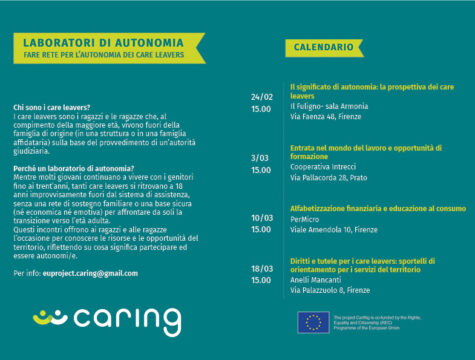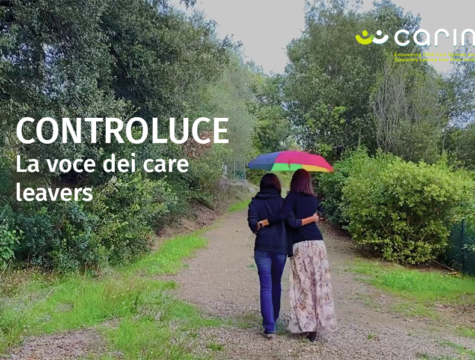Throughout all the phases, CarINg project promotes capacity building adopting a participatory approach, engaging key beneficiaries (including children) and supporting the exchange of good practices and methodologies. The Good Practices Resource Guide is a training tool designed to help alterantive care practitioners, policy makers and service managers to improve the quality of support for children living or at risk of living in alternative care.
This Good Practices Resource Guide is informed by the Situation Analysis Report carried out in March-June 2019, as well as by the consultations with stakeholders and desk review (May-Sept 2019). Good practices have been identified based on a set of criteria and characteristics and based on international recognized alternative care standards and guidelines. Practices have been classified according to whether they fall into one or more of the following typologies of intervention:
- Interventions for prevention of alternative care
- Alternative care practices
- Actions for careleavers
- Pre-Post assessment, monitoring and evaluation
Good practices have been selected based on international recognized standards and guidelines, and based on a set of criteria and characteristics that will be explained in the following section. By presenting practices promoted across different countries (European and non-European), this guide aims to give a broad view and to raise awareness about good policies for vulnerable families and children living or at risk of living in alternative care.
The Guide is structured as follows: the first part illustrates the methodology to identify good practices; the second section presents 10 good practice interventions across the 4 typologies mentioned above; the report concludes by highlighting the main findings and recommendations for CarINg future activities.
You can browse trough the good practices below, or dowload the full pulication from the section Repository.
Please wait while flipbook is loading. For more related info, FAQs and issues please refer to DearFlip WordPress Flipbook Plugin Help documentation.
This guide has been elaborated by ARCO research centre with the collaboration of other partners of the Consortium.




